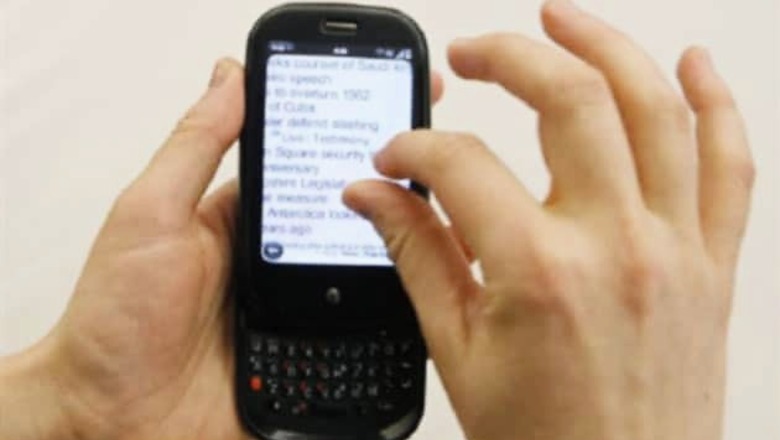
views
Seoul: Asian technology firms vying for a bigger share of the hot smartphone market now face an uphill battle after the world's top PC maker Hewlett-Packard snapped up Palm, stealing a march on rivals and potential bidders.
Asia is home to the world's No. 2 and No. 3 mobile phone makers in South Korea's Samsung Electronics and LG Electronics, but their presence in the fast-growing and lucrative smartphone market has been marginal.
Instead of developing PC-like smartphones, both chose to focus on hardware offerings like phones packed with extra functions such as music, cameras and touch screens - to the cost of their margins.
Now scrambling to make up ground, their job just got harder, analysts said.
"It's not an immediate threat as it's going to take a bit of time for HP to turn around Palm, but the deal definitely means there'll more competition in the already crowded smartphone market," said Paek Jong-seok, an analyst at Hyundai Securities, in Seoul.
HP's $ 1.2 billion agreed deal for Palm is also a setback for Hong Kong-based PC maker Lenovo, which had been seen as a potential frontrunner to buy Palm and break into the smartphone sector.
Shares in LG Electronics fell 2.8 percent, while Samsung was flat and Lenovo fell 2.6 percent on Thursday.
Combo deal
The attraction for HP and others is that Palm offers a combined hardware and software product, the weakest area of many Asian technology companies, which have been forced to use operating systems from the likes of Google Inc and Microsoft Corp.
In response, Samsung is trying to develop its own software tools and introduced its own smartphone operating platform, called bada, this year, though markets remain sceptical.
HP's push into the fiercely contested smartphone arena could also hit efforts by Asian vendors to make headway in the United States, the world's biggest smartphone market, before demand explodes in emerging markets such as China.
"Both HP and Palm are U.S. companies and the U.S. is the largest smartphone market...if HP can introduce some new models before this Christmas, there should be a price war in the U.S. and that's not good news for players like RIM, Motorola, Samsung or HTC," said Vincent Chen, analyst at Taiwan's Yuanta Securities.
Price war
A price war would be an another headache for traditional Asian phone vendors rushing into the fast-growing smartphone market to boost their thin margins.
Profit margins at Blackberry maker RIM and iPhone producer Apple both top 40 percent, while LG suffers margins close to zero, and Samsung has around 10 percent margin.
LG, criticised for being too slow to introducing smartphones, said on Wednesday that turning its struggling mobile business around was top priority and it planned to roll out competitive models from this quarter, though it would take 'a bit of more time' to really improve profitability.
South Korea's Samsung and LG together corner more than 30 percent of the global cellphone market, but their share in smartphone market, which is forecast to grow 35.5 percent this year, is less than 5 percent.
"The smartphone market is simply too fragmented now... The winners are going to be the iPhone, Blackberry, (Google's) Android and Nokia, with everybody else operating on one of those platforms or simply leaving the sector altogether," said Lu Chialin, an analyst at Macquarie Securities.
Serious long-term threat?
HP already has a smartphone, the iPaq, but it barely registers with market share of 0.1 percent in 2009, versus about 1.5 percent for Palm, according to research firm IDC.
"Over the past 10 years HP's development in areas outside PCs has not been very successful, mainly because their strategy towards smartphones has always wavered," said an industry executive who did not want to be identified.
"But taking over Palm shows their intent to enter the smartphone market, and HP still has a very strong marketing capability."
Nokia controls 41.1 percent of the global market, RIM 19.9 percent and Apple 14.4 percent, according to Gartner.
"I suspect HP's next move is going into content. It must have Apple as its ultimate competitor," said Chen at Yuanta.




















Comments
0 comment